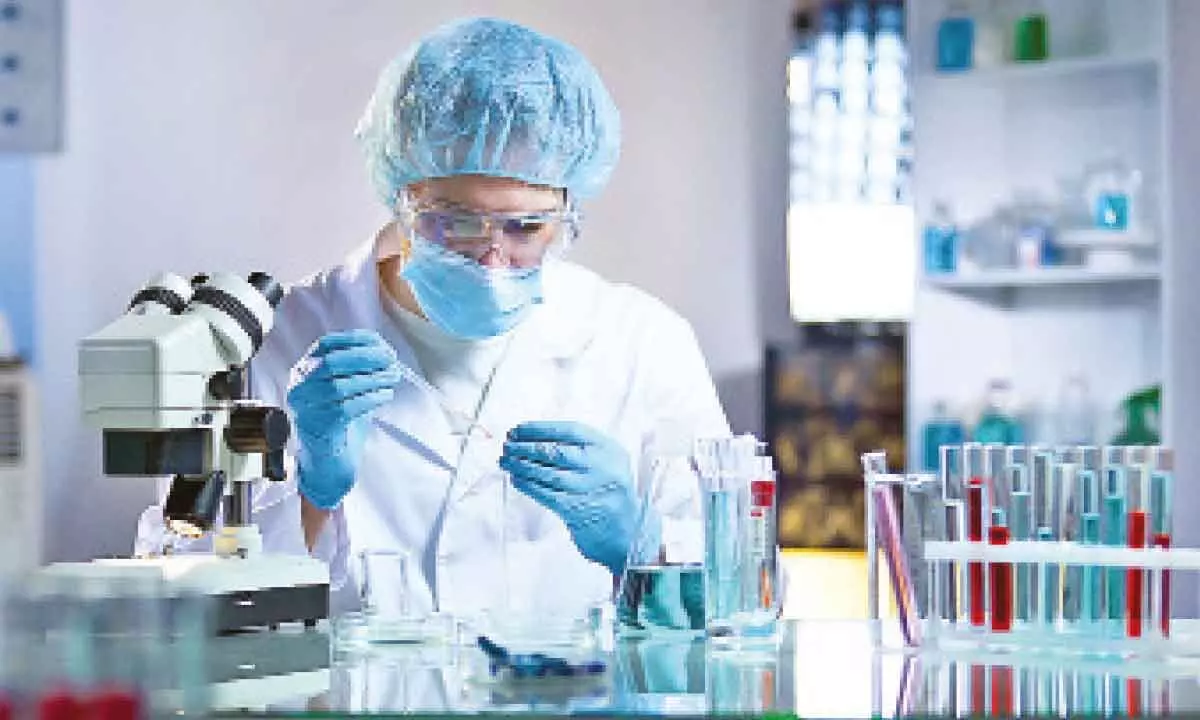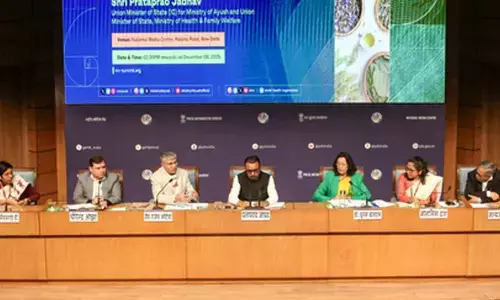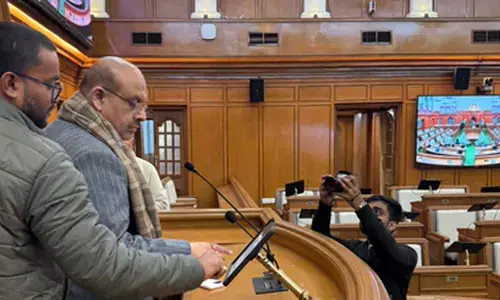IIT Mandi team to turn agriculture residue, paper waste to useful chemicals

Researchers at the Indian Institute of Technology Mandi have identified microbial pairs that can effectively convert cellulose - a major component present in agriculture residue and paper waste - into useful chemicals, biofuels, and carbon suitable for several industrial applications.
Plant dry matter, also known as lignocellulose, is one of the most abundant renewable materials on Earth. Lignocellulosic waste from agriculture, forests, and industries can be converted into valuable chemicals such as bioethanol, biodiesel, lactic acid, and fatty acids using a process called bioprocessing.
Bioprocessing, however, involves multiple steps and can release undesirable chemicals, requiring multiple washing and separation steps, which increases costs.
Scientists are exploring an innovative method called consolidated bioprocessing (CBP) to convert lignocellulosic biomass into useful chemicals.
This method involves combining saccharification - the conversion of the cellulose into simple sugars - and fermentation - the conversion of simple sugars into alcohol - into one step. One way to achieve this is by using a synthetic microbial consortium (SynCONS).
SynCONS are a combination of different microorganisms; in this case, two types of microbes are selected, one brings about saccharification and the other, fermentation.
A combination of microbes that is stable at high temperatures (thermophilic consortia) is particularly useful because fermentation is a heat-releasing process.
IIT Mandi scientists studied two SynCONS systems for a cellulose processing process that was followed by pyrolysis. Pyrolysis, a method that decomposes organic materials by heating them above 500 degrees Celsius in the absence of oxygen, was integrated with microbial bioprocessing.
Pyrolysis converts the unreacted raw materials and side-products formed into useful carbon. Pyrolysis also destroys the microbes after their work is done, which eliminates the need for safe disposal.
“We analysed multiple microbes to create SynCONS that could convert cellulose to ethanol and lactate. We developed two SynCONS - a fungal-bacterial pair and a thermophilic bacterial-bacterial pair - both of which exhibited effective cellulose degradation with total yields of 9 per cent and 23 per cent, respectively. After pyrolysis of the remnant biomass, we obtained a carbon material with desirable physicochemical properties,” said Dr Shyam Kumar Masakapalli, IIT Mandi, in a statement.
The researchers obtained even higher ethanol yields (33 per cent) with the thermophilic SynCONS by including another engineered fermentative partner. The co-use of cellulose-acting enzymes (cellulases) for saccharification resulted in a 51 per cent yield of ethanol.
“The microbial consortia designed can be adopted for bioprocessing of cellulose to valuables such as industrial enzymes like cellulase, ethanol, and lactate. Once scaled up, this process can sustainably generate bioethanol and other green chemicals in bioreactors. The carbon obtained after pyrolysis can be used in a range of applications such as water filtration and electrodes,” added Dr Swati Sharma, IIT Mandi.














